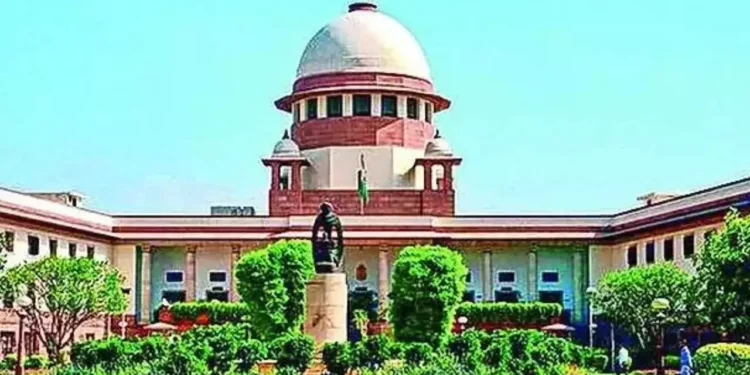Lagatar24 Desk
New Delhi: The Supreme Court is set to deliver its much-anticipated verdict on Friday regarding whether Aligarh Muslim University (AMU) holds the status of a minority institution under Article 30 of the Constitution. This article empowers religious and linguistic minorities to establish and administer educational institutions.
A seven-judge Constitution bench, led by Chief Justice DY Chandrachud and including Justices Sanjiv Khanna, Surya Kant, JB Pardiwala, Dipankar Datta, Manoj Misra, and Satish Chandra Sharma, will pronounce the decision. The bench had reserved its judgment on February 1 after extensive eight-day hearings.
This ruling will address the longstanding debate surrounding AMU’s minority status, which has been in legal contention for decades. The 1981 amendment to the AMU Act, seen as granting the institution minority status, has been a focal point of this debate. Critics argue the amendment failed to fully restore AMU’s original status as established in 1920, prior to the 1951 changes.
The university was originally founded as Muhammadan Anglo-Oriental College in 1875 by Sir Syed Ahmed Khan and was transformed into a university under British rule in 1920. The 1951 amendment removed compulsory religious instruction, altering its foundational character.
Earlier, the BJP-led NDA government opposed the 1981 amendment, leaning on the 1967 S Azeez Basha vs. Union of India judgment that declared AMU could not be classified as a minority institution because it is a central university funded by the government.
Prominent voices like veteran lawyer Kapil Sibal have defended AMU’s minority status, citing Article 30 of the Constitution. However, Solicitor General Tushar Mehta argued that institutions receiving substantial government funding, like AMU, cannot claim minority status. Between 2019 and 2023, AMU reportedly received over ₹5,000 crore from the Centre, reinforcing arguments against its minority classification.
The Supreme Court’s decision follows a complex history, including the 2006 Allahabad High Court ruling that struck down AMU’s minority status, prompting appeals by the university and the Congress-led UPA government. The NDA government later withdrew the UPA’s appeal, citing the Basha judgment as a precedent.
The outcome of this ruling could have significant implications for minority rights and educational institutions across the nation.







